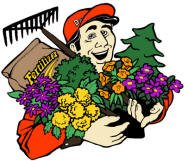Tomorrow is the first in our series of educational seminars in the Owl Barn. While some of the seminars will deal solely with gardening topics and to do with our “backyards”, others will cast a wider net with subjects on environmental stewardship. The first will deal with the environmental side of things concerning the threats to the urban forest with Chad Clink of the Holden Arboretum. Holden Arboretum in Kirtland is a great resource for viewing numerous displays of plants, educational seminars and activities such as hiking trails across its vast 3600 acres. Even the Cleveland Botanical Garden is now a part of the Holden family so that now Holden’s reach extends to the east side of Cleveland. Chad’s presentation should be particularly relevant in our area as the vast metro parks surrounding Cleveland are well known as the Emerald Necklace. As always, the seminars begin at 11 am in the Owl Barn with wonderful snacks and refreshments to boot. The cost is $8.00 for the two hour seminar which I’m sure will provide a wealth of information and hopefully numerous questions from the audience.
I can’t help but thinking about it; that is, what a nice winter so far for the end of January! As I stated before, gnawing mice have been the main problem in the winter storage houses as the normal mouse traps have not been sufficient to control their numbers. One week after various baits were applied, the damage seems to have stopped!
Enjoy the winter as it won’t last long and we’ll see you at the seminars!
Tom
Tom



